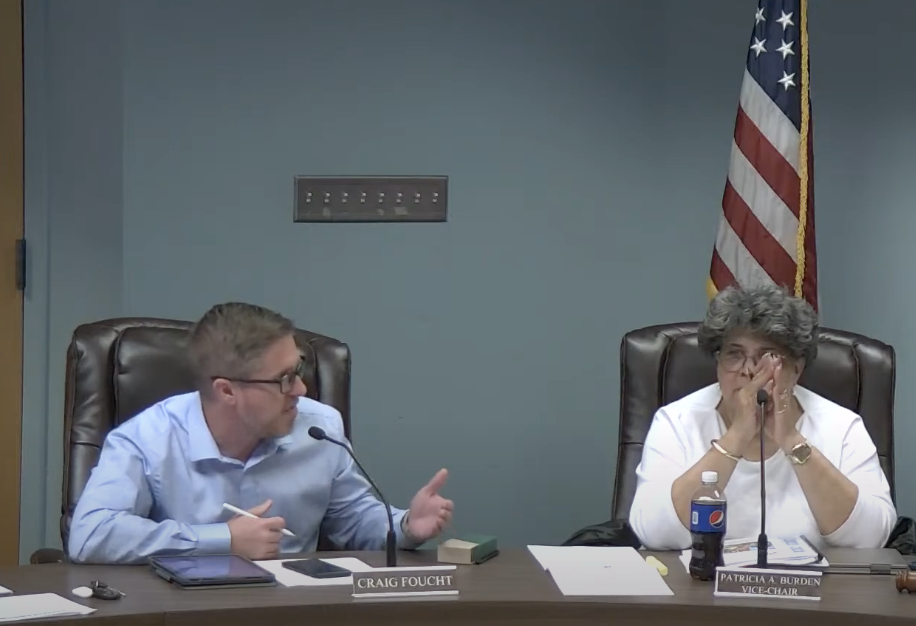
Some of them heard you, but don’t stop scrutinizing WCPS budget.
Don’t ever think that your voices do not matter.
Not ever again.
The Wayne County Board of Education met Thursday to discuss the school district’s proposed budget for the 2022-23 fiscal year.
The special-called meeting was set to hear questions from board members about the spending plan in anticipation of final consideration of the proposal at the board’s regularly scheduled meeting next week.
A final budget is due to the county commissioners by May 15.
When we first talked about the budget, we pointed out a rather shocking line item — more than $490,000 for legal expenses.
And we also noted that the board is considering the renewal of its contract with Raleigh attorney Richard Schwartz, whose take from the district to date has been millions of dollars.
We think that is excessive. And, apparently, a lot of you do, too.
We asked you to let your board members know how you felt — quickly — about the district continuing its relationship with Schwartz.
And boy did you.
We have some good news.
Several of them listened — and not just about Schwartz.
The word came in loud and clear — you wanted the budget and where money is being spent looked at closely.
And in a nearly two-hour meeting, board members asked questions and challenged line items. Well, some of them did anyway.
More on that later.
This was no rubber stamp – and we think you had a lot to do with that.
•
Superintendent Dr. David Lewis explained that this year’s budget is conservative — in keeping with the district’s goal of building a fund balance after the disastrous financial debacle that left the district millions of dollars in debt.
Lewis said those debts have been retired — in part thanks to creative (and approved) use of COVID-19 funding.
The state is projecting that Wayne County will lose about 400 students next year. District officials are budgeting about 600 less, a drop that Lewis has called “very significant.”
“We project lower (enrollment) so we don’t end up overstaffed and overbudget,” Lewis said.
When the actual numbers are recorded, sometime in September or October, he added, the budget can be adjusted. Average Daily Enrollment (ADM) is how state funding is awarded.
And it is how the district will determine what can be spent and where, Lewis added.
Next year, there likely will be no extra COVID funds to save the day, district officials said, so budgeting has to be done with the limitations in mind.
Lewis said that while goals like improving compensation for classified staff and keeping salaries competitive for certified personnel are a priority, when and how they will be achieved will be determined with that balanced budget goal in mind.
Think of it as living within your means.
Lewis added that required increases in classified and certified personnel salaries — as ordered by state government — will have to be considered as the district waits to hear if any funding is coming from the state to support the mandates.
So that is the lay of the land.
Now, to how your board members handled budget questions.
Board member Craig Foucht, who has already asked for justification of several line items, asked Thursday for specifics on everything from textbook spending, utility bills and another contract debacle, Synergistics, to plans for handling the expenses associated with the district’s Wayne School of Technical Arts, which is slated to open with limited enrollment this fall.
Foucht, who voted against establishing the school on Seymour Johnson Air Force Base, said that the money to operate it — and the personnel to staff it — had to be there to justify moving forward.
He emphasized that concern again Thursday.
Lewis explained that the students who will be enrolled there are already counted in the district’s revenue/expenses.
But Foucht and fellow board member Jennifer Strickland pointed out that there were other considerations — buses, utilities, personnel and that the student counts being lowered around the district (and the redirected funding) might have a real effect on staffing and resources at the rest of the county’s schools.
“If we have got to take this from our … local funding, other areas are going to suffer,” Foucht said. “I want to make sure that the public realizes that this school is going to cost money.”
“I am very, very concerned about the damage that is going to be done to our other schools,” Strickland said.
Strickland asked whether the district would be better off expanding advanced classes or other resources rather than adding an additional school.
“Why do we continue to expand when we can’t fix what we already have?” she added.
All good points and questions to consider.
Lewis said the school district will need more help from the county to make Wayne School of Technical Arts a reality, a proposition that has already been discussed and received preliminary support from the county commissioners.
We agree. This is a county project that needs significant support.
That will be a key discussion as the county commissioners begin deliberating on what funds the county will provide for the district next fiscal year.
Lewis added that the county will also need to consider that attracting and keeping staff is getting harder and harder.
Keeping competitive salaries is something else the commissioners will have to consider as they debate local supplements this year.
Lewis said that the district is still not sure about state funding levels or formulas — and until those numbers are in, the budget is still an educated guess.
“There is still no word from the state about whether (the state) is going to fully fund mandated salary increases,” the superintendent said.
And then the hammer fell.
Board member Len Henderson brought up “the elephant in the room” — contract services, specifically, the board’s arrangement with Schwartz, which Henderson pointed out, is set to expire June 30.
And that is when Board Chairman Chris West started to look a little bit more than uncomfortable.
He pointed out quickly that the discussion of legal services, and what they should cost, would be taken up at the board’s meeting Monday night, adding that the school board would have to determine which direction its members wanted to go.
That could include everything from a staff attorney to taking bids for legal services, West said.
Sounds like he is resigned to the fact that Schwartz is too expensive, right?
Not so fast.
West started to ramble about considerations about legal services — like finding an attorney who would work “without regular access to a law library.”
Huh? Bet there are a few local attorneys scratching their heads at that one.
And then he pointed out that the legal services line item has been high because of a significant number of expensive lawsuits, including $185,000 spent to keep the state from taking over Carver Heights Elementary, a statement that was reinforced with a nod by board member Patricia Burden and a seeming echo of support from Wade Leatham.
But Strickland did not let West just throw out that excuse.
She noted that even deducting the $185,000 for Carver, legal services that year were “still over $600,000 “
Foucht also asked about the high percentage of legal bills generated by the Human Resources Department, which is overseen by Dr. Yvette Mason, adding that perhaps that is a place to start to figure out how to cut costs, adding that staff needed direction on what needs to be referred to the attorney and what can be handled in-house.
Lewis agreed that staff need guidelines, adding that getting lawyers involved early often ends up keeping costs down by stopping a conflict from “getting worse.”
Board members also discussed having an attorney for board meetings, contract questions and other “normal” tasks, with the option of calling in a specialist when necessary.
Strickland suggested that the district research how cases were handled under previous board attorneys, including longtime attorney Jack Edwards — specifically how often special counsel was required and what those expenses were.
Lewis asked finance director Leslie Rouse to do that research.
Several board members also asked that Rouse and Lewis look at how legal services are managed in other districts.
That request was amended by West, who pointed out that other districts might not have had the same types of cases faced in Wayne County, so their legal expenses might be lower.
Strickland agreed that there were some significant cases in the last couple of years that required special expertise, but said that the day-to-day legal costs and other consultation expenses need to be scrutinized.
Cutting the legal expense line item is not just a “want to” it is a “must,” she said.
“This is too much money in a district that cannot pay enough to bus drivers to keep our kids in school on time, that can’t get enough teachers’ assistants, that can’t do all the things that we need to do. We can’t get janitors. We can’t get these other things and we are putting all that money into … .”
Strickland added that she had not planned on addressing the attorney fees until Monday, but felt the issue was too important to wait.
“I cannot not speak when we are dropping that kind of money without at least having that conservation of, ‘Hey what is a comparable school district paying.’ I would love to see that number. I understand we have had some nasty situations in this county, and I am glad (the attorneys) were here. But I feel like we have cleaned our house enough that it is time to move on and take a different direction.”
Amen.
•
And finally, a note.
You did this. We armed you with facts and you spoke up.
Your voices mattered.
So keep it up.
While Henderson, Foucht, Strickland and Tommy Sanders seem to be convinced there is a need to look more closely at the attorney fees in general and the district’s contract with Schwartz in particular, Leatham, Burden and West seem to need a little more convincing.
The meeting Monday night is open to the public – and there are several days before that discussion begins.
Make sure you let your board members know what you want. Come to the meeting, type an email or make a phone call.
The budget comment form is still up on the district’s website, too.
Speak up. Stand up.
It looks like you have some board members who are listening.

A loaded discussion

Fighting for their lives

Goldsboro loses a giant

“I’m a flippin’ hurricane!”
Public Notices — Feb. 8, 2026

Belting it out

Legendary

Final Four!


